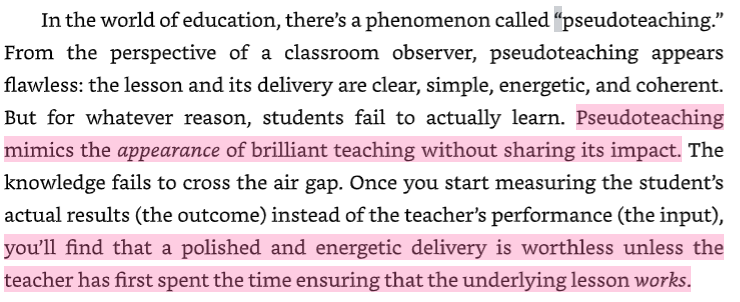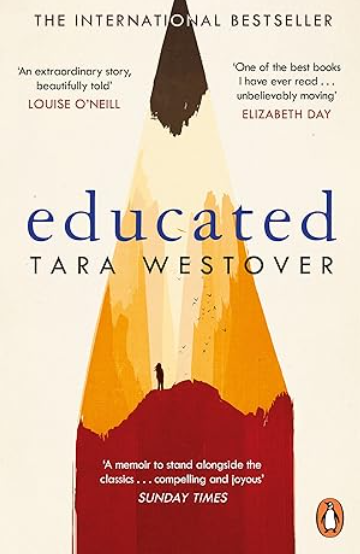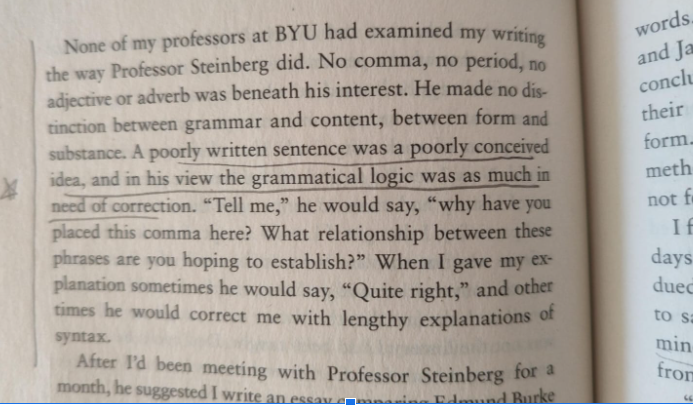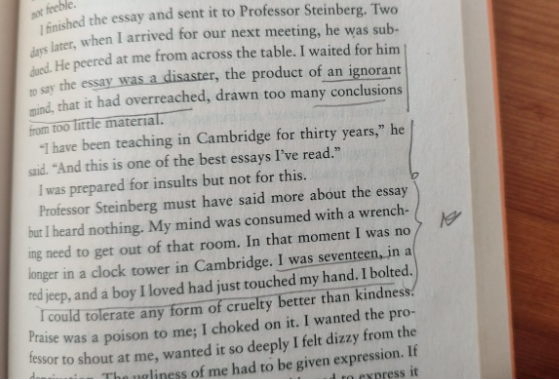Research (and hence a PhD or FPM) doesn’t make one a great teacher.
Entertaining and engaging classes are also not a sign of a great teacher.
Research (Specifically publications) has become an entry barrier in higher education. Your application will only be shortlisted for a teaching position in business schools if it has research/publication.
How you entertain and engage the class will be judged in demo lectures and also when peers observe the class.
Student evaluation also primarily rests on how well teachers entertain and engage students.
Ironically doctoral training is expected to prepare one for the teaching role. But it often lacks good training and instruction on teaching. FDP (Faculty development programs) are plenty on research and development, but shorter and very few on teaching excellence.
The main revenue of business schools comes from students. And they need good teaching and instruction. They need teachers! Great teachers.
So, what makes a great teacher?
A teacher that helps you to learn. And learning is defined in organizational behavior as a relatively permanent change in behavior.
If your behavior has not changed, you have not learned.
Here are a couple of snippets from the books I read recently.
The first quote from “Write useful books”.

When I undertook a seminar course in my FPM (PhD) program. It was a one-to-one course, a first encounter with independent research. It was close to a traumatic experience. It exposed my weakness as an academic writer. The faculty made me revise the seminar paper 19 times in the last phase. After the presentation, remarked there was still space before the comma in the slide!
The experience was humbling.
I desperately searched for academic writing courses. There were almost none.
I attended a few academic writing courses on Coursera. I feel that this is the most important competency, that cripples the careers of many bright researchers. Even today, I feel there is a need for a good academic writing course, particularly for students whose first language is not English. (I am currently working on developing such a course)
The point is – though the experience was traumatic, it changed behavior. It made me realize my weaknesses and made me sensitive towards writing. I changed. I learned. Teaching worked. And the teacher delivered.

Here is another experience from a book that I read. It is the New York Times Best-seller memoir “Educated”. It is featured also in the best 100 books of the last 25 years.
See how the teachers are taskmasters and work closely with students. Look at the attention to detail in writing.

But it didn’t stop there.
The teacher appreciated and praised the student’s work, ensuring she got what she deserved. He helped her get a scholarship, a place at a coveted university.
Here is another snippet from the same book.

(No wonder, the book is a best-seller. It is full of such feel-good achieving moments. ).
The teacher changed her for good, forever.
Teaching even in higher education and in research-intensive programs is about “teaching”. That’s the core element of the job.
Managing classes and publications is unavoidable, but secondary.
In my opinion, this “teaching” defines a good teacher in business school and in higher education too.
Is your student learning? Is he changing as a result of learning? Is the defining crux.
Organizational behavior (OB) is close to behavior change and hence becomes the best tool for teaching trade within business schools.
I feel blessed that I studied OB, studied at a coveted place for OB, and studied with great teachers.
Happy Teachers Day.
